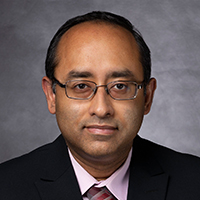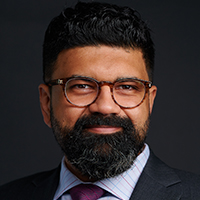Chairs
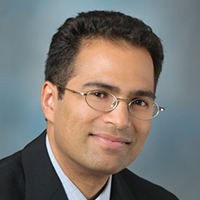
Naveen Pemmaraju
USA
Naveen Pemmaraju
After completing my Internal Medicine training at Johns Hopkins, in the Osler Medical Program, I subsequently completed both hematology and oncology training at MD Anderson Cancer Center (MDACC). I was selected as a chief fellow in my second year of training. I obtained ABIM board certification in Internal Medicine, Hematology and Oncology, and continued my career at MDACC as an Assistant Professor in the Department of Leukemia. I have an active clinical schedule during which I see patients: 2 full days of clinic per week, and 2 months of inpatient service per year. I have fellow teaching responsibilities as a Leukemia hematology/oncology Course Director and was the sole recipient of the MDACC Gerald P Bodey Award for Excellence in Education in 2020. My clinical/translational research work has been focused on improving outcomes and developing novel therapies for patients with rare myeloid malignancies, including for adolescents, young adults, and older adult patients with Blastic Plasmacytoid Dendritic Cell Neoplasm (BPDCN), Myeloproliferative Neoplasms (MPN) and Acute Myeloid Leukemia (AML).
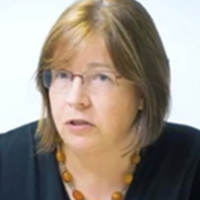
Claire Harrison
UK
Claire Harrison
Professor Claire Harrison graduated from Oxford Univeristy Medical School and became a consultant at the Guy’s and St Thomas Hospital in 2001, where she is now a deputy medical director.
The focus of her clinical work is myeloproliferative neoplasms (MPN), for which she has a national and international reputation. Key areas of interest are clinical trials and associated translational research. In addition to the PT-1 trial, MAJIC, COMFORT-II, JAKARTA-2 and PERSIST-1 where she is currently the global chief or co-chief investigator, she has a leadership role in over 20 clinical trials. This work has led to the approval of new therapies such a ruxolitinib, fedratinib and pacritinib. Translational research has been supported with a grant income of over £10M in the past 5 years. JAK2 exon 12 mutations, genetic suseptibility and the impact of the order of mutations in MPN. In the past 10 years she has published widely (>250 academic articles).
In addition she has a strong interest in patient advocacy and founded the UK MPN group www.mpnvoice.org.uk.
The clinical MPN service at GSTT is large, comprehensive and is internationally recognised as a centre of excellence.
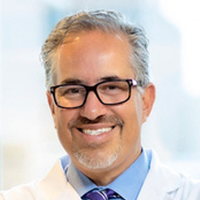
Ruben Mesa
USA
Ruben Mesa
Dr. Mesa serves as the executive director of the Mays Cancer Center, one of only four National Cancer Institute-designated Cancer Centers in Texas. Dr. Mesa is internationally renowned expert on myeloproliferative neoplasms (MPNs), a group of bone marrow disorders that often lead to leukemia. He has been the principal investigator or co-principal investigator of more than 100 clinical trials and co-led the research teams leading to the FDA’s approval of 4 drugs including ruxolitinib, fedratinib, ropegylated interferon, and pacritinib. Dr. Mesa earned his Bachelor of Science degrees in nuclear engineering and physiology, with minors in radiation biophysics and bioengineering, from the University of Illinois at Urbana-Champaign. He received his medical degree, completed his residency in internal medicine and fulfilled his fellowship in hematology/medical oncology from the Mayo Graduate School at the Mayo Clinic College of Medicine in Rochester, Minnesota. He is a fellow of the American College of Physicians and is certified by the American Board of Internal Medicine in internal medicine and medical oncology. Dr. Mesa has been elected to the boards of the American Association of Cancer Institutes and is an officer of the board of the Leukemia and Lymphoma Society.
Faculty
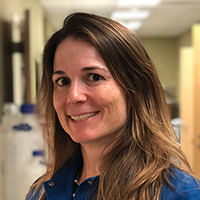
Angela Fleischman
USA
Angela Fleischman
Dr. Angela Fleischman is a physician-scientist investigating hematologic malignancies. She integrates her research with the clinical care of patients with these diseases.
Her laboratory focuses on the role of inflammation in MPN. Her overarching research goal is to identify what drives disease initiation in MPN and to ultimately translate her scientific discoveries into therapeutic benefit for MPN patients.
Her research program in spans the entire translational research spectrum. In the lab, she studies the fundamental pathobiology of MPN through mouse modeling and in vitro experimentation with primary patient samples. Her clinical work informs her research, and accordingly Dr. Fleischman research methods primarily involve patient samples for in vitro assays of stem and progenitor function.
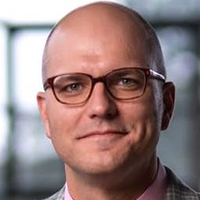
Aaron Gerds
USA
Aaron Gerds
Dr. Gerds is an Associate Professor of Medicine and Deputy Director for Clinical Research at the Cleveland Clinic Taussig Institute. He serves as the Medical Director of the Clinical Research Office for the Case Comprehensive Cancer Center. He is also the Editor-in-Chief of ASH Clinical News, and is the Chair of the NCCN MPN guidelines panel. Dr. Gerds’ clinical and research interests focus on optimizing current treatments, and developing new therapies for patients with myeloproliferative disorders and other myeloid neoplasia.
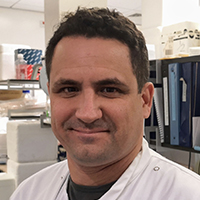
Ian Hitchcock
UK
Ian Hitchcock
I studied for my PhD at the University of York, investigating the roles of novel receptors in megakaryocyte development before moving to Ken Kaushansky’s lab at UC San Diego for a postdoctoral fellowship where I started working on thrombopoietin signalling. I was appointed as an Assistant Professor in 2007 and moved my lab to Stony Brook University Medical Center in 2010. I returned to York in 2014 and was made Professor of Experimental Haematology in 2017. My research focuses on understanding the mechanisms of mutations that cause myeloid malignancies, with particular attention on thrombopoietin signalling in MPNs, with the aim of identifying new targets for therapeutic development.

Ronald Hoffman
USA
Ronald Hoffman
Ronald Hoffman, MD, is the Albert A. and Vera G. List Professor of Medicine, Professor of Medicine (Hematology and Medical Oncology), and Director of the Myeloproliferative Disorders Research Program. He founded this program in 2007 and has developed it into one of the most effective and well respected programs in the world dealing with myeloproliferative disorders. His interest in this group of blood cancers stemmed from his time as a fellow in Hematology at Mount Sinai (1974-1977.), where he worked with numerous Mount Sinai faculty including Drs. Ralph Zalusky, Esmail Zanjani, and Lewis Wasserman. After holding administrative positions at several other institutions, Dr. Hoffman retuned to Mount Sinai in 2007 to work in the laboratory and the clinics in order to focus on translational research in blood cancers. He continues to care for patients with myeloproliferative neoplasms on a daily basis.
Dr. Hoffman is a leader in stem cell research. His studies of human hematopoietic stem cells and progenitor cells in myeloproliferative neoplasms have led to many therapeutic advances. He has also pioneered a unique method of increasing the number of cord blood stem cells used to treat patients with blood cancers and blood disorders. His extensive track record in flow cytometry, the performance of a variety of surrogate functional assays for hematopoietic stem and progenitor cells, immunohistochemistry and molecular biological based assay systems as well as expertise in clinical trials has allowed him to pursue hypothesis based research both in the laboratory as well as the clinic. As a physician scientist who actively provides care to MPN patients, he’s had the opportunity to observe the manifestations, sequelae and evolution of these diseases in patients which provides greater understanding of the biology of these chronic hematological malignancies.
In 2003, Dr. Hoffman founded the Myeloproliferative Neoplasm Research Consortium, a multi-institutional program project grant funded by the National Cancer Institute, which is committed to research in and treatment of myeloproliferative neoplasms. Continuously funded by the National Cancer Institute for over a decade, the Consortium involves 12 institutions throughout the United States and Canada and is focused on identifying new therapies for patients with myeloproliferative neoplasms and evaluating their effectiveness in carefully constructed clinical trials
Dr. Hoffman has served as president of the American Society of Hematology and the International Society for Experimental Hematology.
Dr. Hoffman is the editor of Hematology: Basic Principles and Practice. He conceptualized and organized this leading textbook of hematology, which is currently entering its eighth edition. He is an author on almost 500 peer-reviewed publications and 130 books/book chapters/reviews. He has also served as the editor of the journal Experimental Hematology.
Dr. Hoffman has mentored countless post-doctoral fellows and junior faculty, and serves as advisor to the Mentoring Committee for junior faculty at the Icahn School of Medicine at Mount Sinai.
In 2017 Dr. Hoffman received the prestigious Mentor Award from American Society of Hematology in recognition of his outstanding commitment to the training and career development of early-career hematologists and advancing research and patient care in hematology.
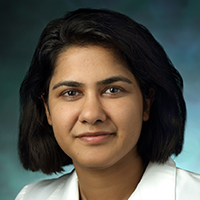
Tania Jain
USA
Tania Jain
I am a physician scientist in the hematological malignancies and stem cell transplantation division with Sidney Kimmel Comprehensive Cancer Center at the Johns Hopkins and my academic focus is cellular therapy and transplantation in the treatment of high-risk hematological malignancies especially myeloproliferative neoplasms. My primary research focus is to develop strategies to improve outcomes and prevent relapse of hematological malignancies following allogeneic stem cell transplantation. I also serve as the director of the adult CAR T program for hematological malignancies as we grow our CAR T program to help patients with advanced hematological malignancies. My academic interest in this space lies in studying the aspects of toxicity of CAR T cell therapy with an aim to improve long term outcomes in these patients.
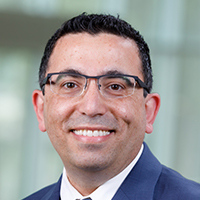
Joseph Khoury
USA
Joseph Khoury
Dr. Joseph Khoury is the Stokes-Shackleford Professor and Chair, Department of Pathology and Microbiology, University of Nebraska Medical Center. He is recognized internationally as a leader in the field of hematopathology, in which he combines longstanding expertise in clinical diagnostics, teaching, and translational research. Dr. Khoury has authored over 300 publications, in addition to textbooks and numerous book chapters. He has received multiple awards for teaching, mentorship, research, and clinical achievements. Dr. Khoury is the Chair of the Standing Editorial Board of the WHO Classification of Tumours and has contributed significantly to the 5th edition of the classification of hematolymphoid neoplasms.
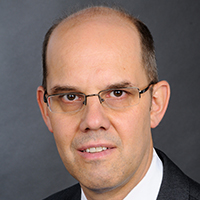
Steffen Koschmieder
Germany
Steffen Koschmieder
Professor Dr. med. Steffen Koschmieder is board-certified in Internal Medicine, Hematology/Oncology, and Hemostaseology. He studied Medicine in Bochum, Mainz, Dijon, Houston, and Salt Lake City, received his specialty training in Frankfurt and Münster, and was a postdoctoral researcher in Prof. Daniel Tenen´s laboratory at the Harvard Institutes of Medicine in Boston. He is currently professor for “Translational Hematology and Oncology” and Attending Physician at RWTH Aachen University in Germany. His research focuses on Myeloproliferative Neoplasms (MPN) and disorders of blood coagulation, and he has published over 180 scientific publications. Currently, he is Research Coordinator of the Clinical Research Unit 344 on MPN and myelofibrosis in Aachen and co-speaker of the German Study Group (GSG-MPN) and the GSG-MPN bioregistry.
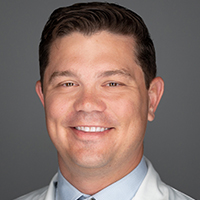
Andrew Kuykendall
USA
Andrew Kuykendall
Dr. Andrew Kuykendall is an Assistant Member at Moffitt Cancer Center in Tampa, Florida where he is a clinical researcher with a specific focus on myeloproliferative neoplasms. His focus is on developing novel therapeutic strategies for patients with myeloproliferative neoplasms to help patients live longer and live better.

Sanam Loghavi
USA
Sanam Loghavi
Sanam Loghavi is an Associate Professor of Pathology and Laboratory Medicine at the Department of Hematopathology at MD Anderson Cancer Center. She completed her medical school training at Azad University in Tehran, Iran, followed by residency training in anatomic and clinical pathology at Cedars Sinai Medical Center in Los Angeles, California. She pursued further fellowship training in surgical pathology, followed by hematopathology and molecular pathology at MD Anderson Cancer Center. She is Board-certified in hematopathology and molecular pathology and specializes in hematologic malignancies, in particular myeloid neoplasms. Her research interests include molecular risk stratification of hematologic neoplasms and measurable residual disease detection by flow cytometry and next generation sequencing in hematologic malignancies. She is the Medical Director of the ECOG/ACRIN Leukemia Bank at the Central Biorepository and Pathology Facility at MD Anderson. She has authored more than 140 peer-reviewed publications focused on hematologic neoplasms and is a co-investigator on several national and internationally-run clinical trials for hematologic malignancies. She serves on various committees including the HPATH Committee of the College of American Pathologists and the Education and Outreach Committees for International Clinical Cytometry Society.
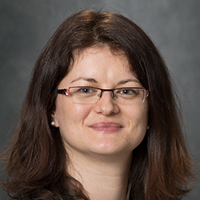
Lucia Masarova
USA
Lucia Masarova
Dr. Masarova is an Assistant Professor at the MD Anderson Cancer Center in Houston, Texas at the Department of Leukemia with special interest in myeloid malignancies. Dr. Masarova’s broad clinical knowledge in oncology and malignant hematology has been obtained through trainings in Europe and in the USA. Current research is dominated by myeloproliferative neoplasms, original clinical research focused on the unmet needs and various clinical trials.
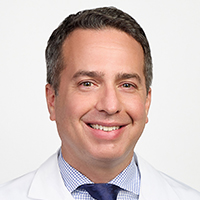
John Mascarenhas
USA
John Mascarenhas
Dr. John Mascarenhas is a Professor of Medicine at the Icahn School of Medicine at Mount Sinai (ISMMS) and a member of the Tisch Cancer Institute in New York City. Dr. Mascarenhas is the Director of the Adult Leukemia Program and Leader of Clinical Research within the Myeloproliferative Disorders Program at Mount Sinai. As a clinical investigator in malignant hematology with a focus in translational research involving MPNs, he is primarily responsible for the clinical trials portion of the Myeloproliferative Disorders Program at ISMMS. Dr. Mascarenhas is also the Principal Investigator (PI) of the clinical trials project within the National Cancer Institute sponsored Myeloproliferative Neoplasms Research Consortium (MPN-RC). He has served as PI or Study Chair of multiple investigator-initiated and industry-sponsored early and late phase clinical trials evaluating innovative approaches to the treatment of MPNs and secondary leukemia.
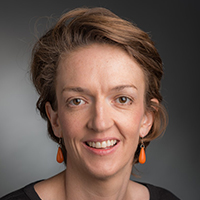
Ann Mullally
USA
Ann Mullally
Dr. Ann Mullally is an Associate Professor of Medicine at Harvard Medical School, a physician-scientist at Brigham and Women’s Hospital and Dana-Farber and an Associate Member at the Broad Institute. Dr. Mullally’s laboratory studies the genetics, biology and therapy of myeloid blood cancers, with a focus on myeloproliferative neoplasms (MPN). Her research interests include the biology of mutant calreticulin (CALR) and JAK2V617F in MPN, the biology of myelofibrosis, MPN stem cells and the development of new strategies to target them. Dr. Mullally received her MD from University College Dublin, Ireland, completed residency at Johns Hopkins Hospital and a fellowship in Hematology/Oncology at Dana-Farber. She sees patients with MPN in her clinic and is actively involved in all aspects of patient-oriented research. The overarching goal of Dr. Mullally’s research is to advance the understanding of MPN and to translate this into improved treatments for patients dealing with these diseases.
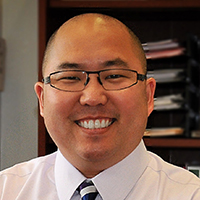
Stephen Oh
USA
Stephen Oh
Stephen Oh, MD, PhD is Associate Professor of Medicine and Co-Chief of the Division of Hematology at Washington University School of Medicine. Dr. Oh’s clinical practice and research efforts are focused on myeloproliferative neoplasms (MPNs). His laboratory investigates mechanisms driving the initiation, development, and progression of MPNs, with a particular focus on inflammatory cytokine signaling networks in MPNs. The long-term objective of his work is to translate the findings from his laboratory research into improved therapies for MPN patients.
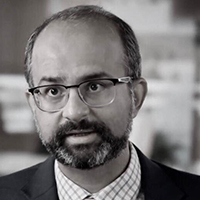
Mrinal Patnaik
USA
Mrinal Patnaik
Dr. Patnaik is a professor of Internal Medicine, with the Division of Hematology and the Department of Internal Medicine at Mayo Clinic, Minnesota. He is the chair of the acute leukemia and chronic myeloid neoplasms disease oriented group and is also the director for the Center for individualized Medicine epi genomics program. His research interests in clonal hematopoiesis and epigenetic deregulation seen in myeloid neoplasms, with a specific focus on chronic myelomonocytic leukemia.

Deepti Radia
UK
Deepti Radia
Dr Deepti H Radia, Haematology Consultant, Guy’s & St Thomas’ Hospitals NHS Foundation Trust, London.UK.
Deepti Radia, MRCPI, FRCPath, MSc Med Ed.
Deepti has been in her consultant post at Guys and St Thomas Hospitals since 2003.
Deepti is the lead clinician for the systemic mastocytosis and chronic myeloid leukaemia services. The ECNM UK mastocytosis centre of excellence at Guys and St Thomas Hospitals was jointly established by Deepti and Dr Clive Grattan in 2005. This nationally recognised service accepts referrals from across the UK, Ireland and further afield.
She is CI for landmark trials for patients with advanced/indolent systemic mastocytosis – PKC412, EXPLORER, PATHFINDER and PIONEER. She is a member of the study steering committee for the EXPLORER/PATHFINDER trials (Avapritinib in advanced SM) and APEX trial (Bezuclastinib) for patients with advanced SM.
Deepti is actively involved in the education of clinicians and patients improve understanding of mast cell disorders by delivering regular teaching in regional, national, international meetings in addition to the UKMasto.org and TMS patient support groups.

Andreas Reiter
Germany
Andreas Reiter
Dr. Andreas Reiter is Associate Professor and Consultant at the Department of Hematology and Oncology at the University Hospital Mannheim, Germany, where patients with chronic myeloid neoplasms receive specialist care and can be treated on national and international studies. His main research focus lies in the pathogenesis and treatment of classical myeloproliferative neoplasms (MPN) but also the broad spectrum of rare chronic myeloid neoplasms. Since 1992, he has been involved in numerous clinical trials, which most recently focused on diagnosis and treatment of myelofibrosis, polycythemia vera, chronic eosinophilic leukemia and systemic mastocytosis with tyrosine kinase inhibitors. Dr. Reiter is member of various decision-making bodies of the German Study Group for MPN (GSG-MPN). He has established the “German Registry for Disorders of Eosinophils and Mast Cells”.
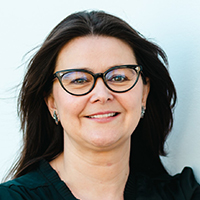
Susan Robinson
UK
Susan Robinson
Doctor Susan Robinson graduated from King’s College London and became a consultant at the Guy’s and St Thomas Hospital in 2010, where she is now a clinical director, clinical lead and nationally and internationally recognised expert in obstetric haematology and transfusion medicine. Wider roles include clinical lead for the Sustainability and Transformation Partnership South East London Pathology Programme, NICE Transfusion guideline group, Quality Standards and British Society for Haematology Transfusion Task Force. She helps improve blood for patients (UK Blood Services’ Standing Advisory Committee on Blood Components) and analyses adverse outcomes, providing recommendations (National haemovigilance scheme: SHOT).

Daniel Royston
UK
Daniel Royston
Dr Royston is a Haematopathologist at the University of Oxford / OUH NHS FT. He has an interest in the applications of image analysis to digital pathology, with particular focus on using artificial intelligence (AI) to improve the diagnosis, prognosis and disease monitoring of MPNs.

Richard Silver
USA
Richard Silver
RICHARD T. SILVER, MD, is Professor Emeritus of Medicine and Director Emeritus of the Richard T. Silver, MD Myeloproliferative Neoplasms Center, Weill Cornell Medicine, and Attending Physician at The New York Presbyterian Hospital. An internationally recognized expert pertaining to the leukemias and the myeloproliferative neoplasms (MPNs), he is also a broad-based hematologist/oncologist specializing in patient care, clinical trials, and clinical drug development. He served as Acting Chairman, Vice Chairman, and Principal Investigator of a large multidisciplinary cancer group (Cancer and Leukemia Group B) sponsored by the National Cancer Institute. He introduced interferon for treating the MPNs, advocating for its use as a first-line treatment years before his colleagues recognized its disease-altering properties. He was one of the initial investigators in the trials of the drug imatinib, which revolutionized the treatment of chronic myeloid leukemia.
He also developed and popularized the bone marrow biopsy technique used worldwide for the diagnosis of hematologic disorders, culminating in a landmark text, The Morphology of the Blood and Marrow in Clinical Practice (1970).
Dr. Silver was born in New York City on January 18, 1929. His father, Benjamin, had immigrated to New York City from Ukraine and graduated from the City College of New York with a degree in civil engineering. His mother, Pauline, was a homemaker and expert bookkeeper. His late brother Norman was an orthopedic surgeon. An accomplished clarinetist, Dr. Silver graduated from the High School of Music and Art, where he was first clarinetist of the symphony orchestra and symphonic band. At Cornell University, he was solo clarinetist in the University orchestra and symphonic band. In 2018, he and his wife endowed the Barbara and Richard T. Silver ’50, MD ’53 Associate Professorship in Music and the Barbara and Richard T. Silver ’50, MD ’53 Wind Symphony.
He served in the Uniformed (Commissioned) Officers Corps of the US Public Health Service, assigned to the National Cancer Institute (NCI) and spent a year at the University of Bahia, Salvador, Brazil, helping establish a residency training program as a Visiting Fulbright Professor, also supported by the Rockefeller Foundation. While in Brazil, Dr. Silver journeyed to the Mato Grosso to study the blood groups of the primitive Indians of the Upper Xingu River region. Research publications resulted in election as a Fellow in the Explorers Club, where he subsequently served on the Board of Directors.
Dr. Silver had a large international hematology/oncology practice and has maintained an academic career lasting into his 90s. He has written 317 peer-reviewed papers, four books, 46 book chapters, and countless abstracts. He has held 11 distinguished visiting professorships. He has been convener and co-chair of 12 International Congresses on the MPNs. His many honors include the Grinberg/Wisch Award, Icahn School of Medicine at Mount Sinai; the European LeukemiaNet Merit Award; the Levine Cancer Institute/University of North Carolina Outstanding Achievement Award; and Honorary Lifetime Achievement Awards from the Israeli Society of Hematology and Blood Transfusion and the University of Texas MD Anderson Cancer Center. In addition to the Silver MPN Center and the Richard T. Silver Distinguished Professor of Hematology and Oncology, he received a Lifetime Academic Achievement-Dedication and Service Award in 2011 from the Dean of Weill Cornell Medical College and a Special Achievement Award from the Weill Cornell Medical College Alumni Association in 2012.
In 1968, Dr. Silver founded Cancer Research & Treatment Fund (CR&T), a nonprofit organization dedicated to advancing new treatments and cures for cancer, with a particular focus on the MPNs. He is currently CR&T’s Vice President and Medical Director. To date, CR&T has committed more than $17 million to cancer research.
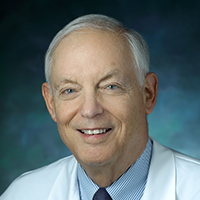
Jerry Spivak
USA
Jerry Spivak
Jerry L. Spivak, MD, MACP, is an Emeritus Professor Medicine at the Johns Hopkins University School of Medicine and a member of the part-time staff at the Johns Hopkins Hospital. Dr. Spivak is a graduate of Cornell University Medical College and received training in internal medicine, hematology and oncology at the Johns Hopkins Hospital, New York Hospital and the National Cancer Institute. Board-certified in Internal Medicine and Hematology, Dr. Spivak is a former Director of the Hematology Division at Johns Hopkins, and for 20 years has been Director of the Johns Hopkins Center for the Chronic Myeloproliferative Disorders (now known as the myeloproliferative neoplasms). He is an author of 276 clinical and scientific publications, a former member of the Howard Hughes Medical Institute, and the recipient of a Research Career Development Award and a Merit Award from the National Institutes of Health. Dr. Spivak’s research and clinical interests involve the pathogenesis, diagnosis and management of the myeloproliferative neoplasms, polycythemia vera, primary myelofibrosis, essential thrombocytosis, and, in particular, hematopoietic stem cell behavior in these disorders.
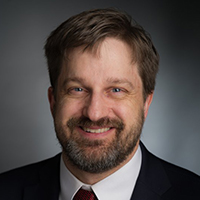
David Steensma
USA
David Steensma
David Steensma, MD, FACP, has served as the Global Head of Hematology in the Novartis Institutes for Biomedical Research (NIBR) in Cambridge, Massachusetts since December 2020, leading early clinical development across hematological malignancies and non-malignant hematology. After medical school at the University of Chicago-Pritzker School of Medicine, he trained as a hematologist and medical oncologist at Mayo Clinic, spent several years as research scholar focused on globin gene regulation at the Weatherall Institute of Molecular Medicine at the University of Oxford, and served on the faculty at Mayo for 7 years before joining Dana-Farber Cancer Institute and Harvard Medical School in 2009. At Dana-Farber, he was the Edward P. Evans Professor of Myelodysplastic Syndromes and director the Center for Prevention of Progression of Hematological Malignancies; at Harvard he co-directed a new course in stem cell biology and regenerative medicine. He has served on the Food and Drug Administration Oncology Drugs Advisory Committee (FDA ODAC), Education Chair for the American Society of Hematology (ASH), editor of several ASH publications including ASH Clinical News, and Art of Oncology section editor of the Journal of Clinical Oncology, and published >450 articles on topics in hematology, hematopathology and medical history.
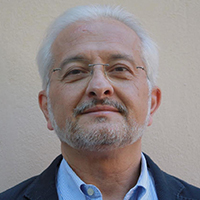
Alessandro Vannucchi
Italy
Alessandro Vannucchi
Alessandro M. Vannucchi, MD, is a Professor of Hematology and director of the Hematology Department at the University of Florence and AOU Careggi in Florence, Italy, and the Center for Research and Innovation of Myeloproliferative Neoplasms. He holds various appointments at the university, including director of the Specialty School in Hematology and Director of the Center for High Education “DenoTHE”. His research interests are focused on myeloproliferative neoplasms (MPNs) and molecular genetics of myeloid neoplasia. He serves as coichair of the GIMEMA Foundation Working Party on MPN and is principal investigator of the MyNERVA research alliance. He sits on the board of the International Working Group for Myelofibrosis Research and Treatment (IWG-MRT), the European LeukemiaNet Work Package 9 for MPN, the European Hematology Association Specialized Working Group on Myeloproliferative Neoplasms. Dr Vannucchi has authored or co-authored more than 550 peer-reviewed publications, mostly in the field of MPN, and has presented at several national and international meetings.
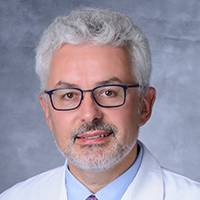
Srdan Verstovsek
USA
Srdan Verstovsek
Dr. Verstovsek is Professor of Medicine and hematologist-oncologist at MD Anderson Cancer Center in Houston, Texas He is a global leader in myeloproliferative neoplasms (MPN) and the Founder/Director of the largest single institution MPN Clinical Research Center worldwide. Dr. Verstovsek has achieved international acclaim for his leadership in developing landmark MPN therapeutics and have received several awards. His contributions have been globally recognized with numerous invitations as expert speaker/educator/Chair at the most significant national/international conferences.
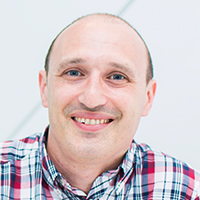
Daniel Wiseman
UK
Daniel Wiseman
Dr Daniel Wiseman is an Honorary Consultant Haematologist and Physician Scientist at The Christie Hospital in Manchester, UK, specialising in myeloid malignancies. He leads the Christie’s myelodysplastic syndromes (MDS) service, is chief investigator on several clinical trials, and is Translational Science lead for the UK NCRI MDS clinical studies group. He runs a research lab at The University of Manchester, with a specialist focus on chronic myelomonocytic leukaemia and related MDS/MPN overlap syndromes.

Ibrahim Yakoub-Agha
France
Ibrahim Yakoub-Agha
Current chair of the practice harmonization and guidelines of EBMT, past chair of the Chronic Malignancies Working Party (CMWP) of EBMT (2018-2022) and past President of the Francophone Society of Bone Marrow Transplantation and Cellular Therapy (SFGM-TC) (2012-2016), Prof. Ibrahim Yakoub-Agha has served as Head of the Hematopoietic Cell Transplantation and cellular therapy Unit at Lille University Hospital since 2008.
He is also Editor in Chief of Current Research in Translational Medicine, has authored or co-authored more than 470 scientific articles in the field of allogeneic hematopoietic cell transplantation with a focus on studies concerning patients with myelodysplastic syndrome, multiple myeloma and immune effector cells such as CAR T cells, and has written several chapters for referential textbooks.
